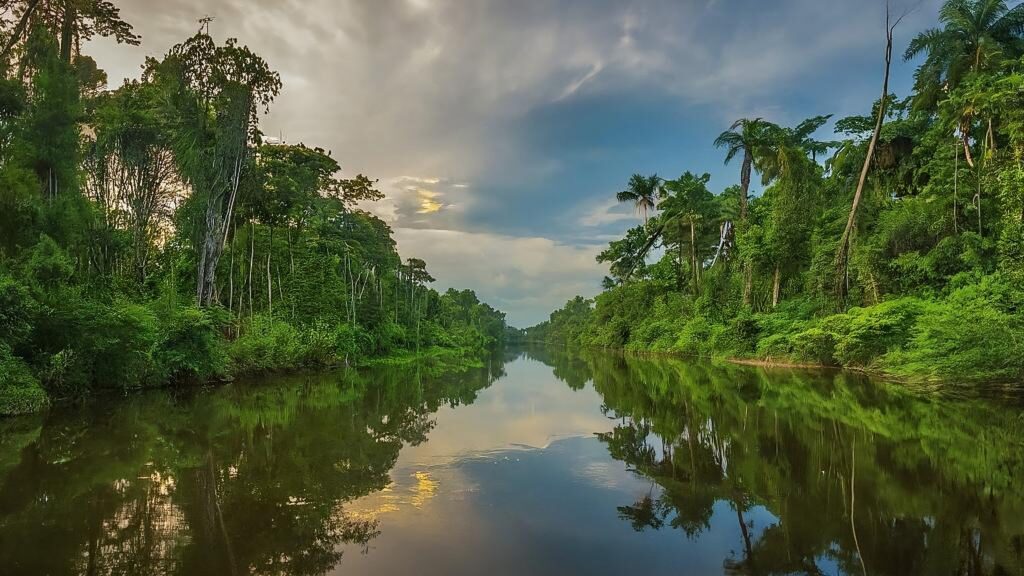A controversial four-lane highway is being constructed through tens of thousands of acres of protected Amazon rainforest ahead of the COP30 climate summit in Belém, Brazil. The Brazilian government argues that the road will improve traffic flow for over 50,000 expected visitors, including global leaders. However, environmentalists argue that this project contradicts the summit’s mission to combat climate change and preserve ecosystems.
Environmental Concerns Over Amazon Destruction
Officials claim that the road is “sustainable,” but many locals and conservationists disagree. The Amazon rainforest plays a crucial role in absorbing carbon and maintaining biodiversity. Experts warn that cutting down large sections of forest for infrastructure weakens this delicate ecosystem and could accelerate deforestation in surrounding areas.
Along the 13-kilometer (8-mile) stretch already cleared, massive tree stumps and piles of logs serve as reminders of the once-thriving forest. Heavy machinery grinds through the forest floor, paving over wetlands and further disrupting the region’s fragile balance.
Displacement and Economic Loss for Local Communities
Many local residents face displacement and economic hardship due to the construction. Claudio Verequete, a local harvester who relied on açaí berries, has seen his source of income vanish. “Everything is gone,” he laments, standing near the cleared land. “We lost our harvest, and with it, our income.”
Verequete, who lives just 200 meters from the highway, has not received any compensation. He fears the road will encourage further deforestation, leading to commercial development that could ultimately force him and his neighbors to leave. “One day, someone will offer money to build a gas station or a warehouse. Then, we’ll be pushed out,” he warns.
The new road also fails to offer benefits to those living nearby. “Trucks will pass through, but we won’t have access. If someone gets sick, we still won’t be able to reach Belém’s center easily,” Verequete explains.
Impact on Wildlife and Biodiversity
The road cuts through a protected forest, leading scientists to warn about the fragmentation of habitats. Wildlife researcher and veterinarian Professor Silvia Sardinha, who rehabilitates injured animals near the construction site, worries that the road will disrupt natural migration patterns. “Deforestation means loss. Land animals will struggle to cross, limiting where they can live and breed,” she explains.
While the government has promised wildlife crossings, experts argue that such measures do not fully compensate for the loss of natural habitat.
Government Defends Infrastructure Expansion
Despite opposition, Brazilian officials stand by their decision. The Brazilian president has called the summit a “historic moment,” emphasizing that it is “a COP in the Amazon, not about the Amazon.” The goal, he states, is to highlight conservation efforts while discussing future environmental policies.
Pará state Infrastructure Secretary Adler Silveira has described the project as part of a broader plan to modernize the city. The highway is one of 30 infrastructure projects aimed at improving Belém’s capacity to host the event and leave a “legacy for the population.” Plans include wildlife crossings, bike lanes, and solar-powered lighting.
In addition to the highway, the government is investing in an $81 million airport expansion to double passenger capacity, new hotels, an upgraded port for cruise ships, and a 500,000 square-meter park, Parque da Cidade, to serve as a public gathering space.
Mixed Reactions From Businesses and Locals
Some business owners welcome the developments, believing they will boost tourism and trade. Dalci Cardoso da Silva, a leather shoe vendor, sees economic opportunities. “Belém was once beautiful and well-kept but later neglected. Now, it’s being repaired, and more people are coming. I can sell more and earn more,” he says.
However, others remain skeptical. Herbal medicine seller João Alexandre Trindade da Silva acknowledges the disruptions but hopes the summit will lead to meaningful action. “All construction causes problems, but if the decisions made at COP30 lead to real change, the planet will breathe easier.”
The Bigger Question: Does COP30 Undermine Its Own Mission?
As world leaders prepare to gather in Belém for COP30, critics question whether the environmental cost of flying thousands of delegates to the summit, combined with large-scale infrastructure projects, ultimately contradicts the event’s purpose. While the summit aims to promote sustainability, the construction of roads, hotels, and other facilities in ecologically sensitive areas raises concerns about whether the environmental damage outweighs the benefits.


